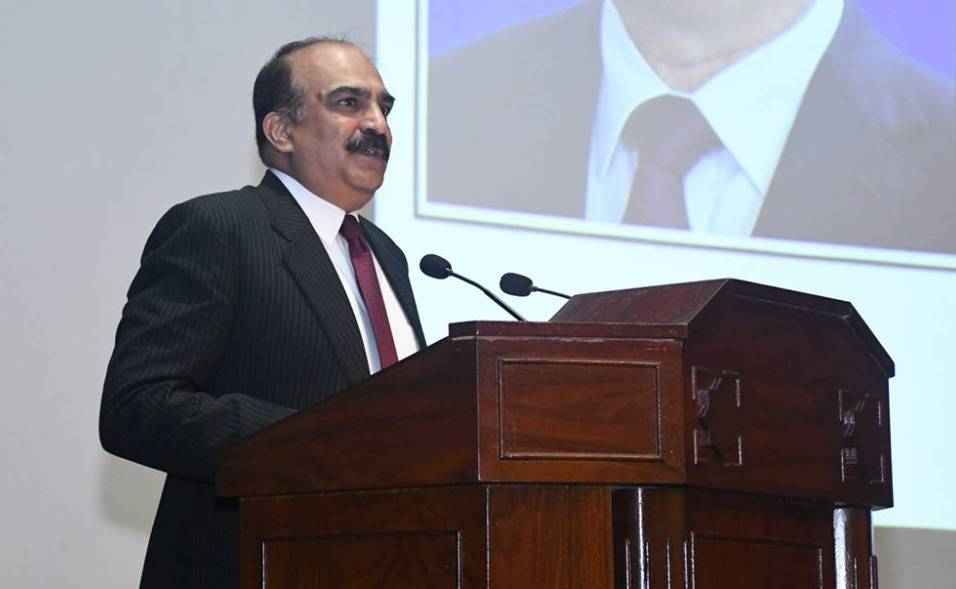Prime Minister Shehbaz Sharif is expected to make a final decision on Monday (today) regarding a possible one-month extension for filing income tax returns. This extension has been necessitated by the failure of the Federal Board of Revenue’s (FBR) system to handle returns containing large amounts of data. With the September 30 deadline fast approaching, there has been mounting pressure from tax associations and professionals across Pakistan to grant an extension due to the technical challenges taxpayers are facing while using the FBR’s IRIS system.
On Sunday, the FBR received numerous requests from tax bars and associations across the country, urging the government to extend the deadline for filing income tax returns. Among the voices advocating for an extension was Faraz Fazal Sheikh, President of the Rawalpindi Islamabad Tax Bar Association, who shared his concerns with Business Recorder. He highlighted that while smaller returns, such as those from salaried individuals, were being processed by the FBR’s system, larger returns containing high volumes of data had not been successfully uploaded over the last two days. This backlog, he argued, necessitates an immediate extension to avoid penalizing compliant taxpayers.
Faraz Fazal Sheikh further explained that despite early warnings and repeated communications with the FBR regarding the inefficiency of the IRIS system, the issue remains unresolved. As a result, taxpayers are struggling to submit their tax returns within the prescribed timeline, which is currently set for September 30, 2024.
“The IRIS software, which is supposed to facilitate the filing of tax returns, is currently inadequate and plagued by technical failures, slow response times, and errors in tax calculations,” he said. These persistent issues have hindered taxpayers from completing their filings accurately and on time, particularly in cases involving the calculation of minimum tax.
Even if the IRIS system were to become fully operational immediately, tax professionals estimate that it would take at least 45 more days to process all the outstanding returns. According to Faraz, tax returns have become increasingly complex over the years, requiring significant time and effort to compile the necessary information. He emphasized that the complexity of tax forms, combined with the growing number of taxpayers, justifies an extension to ensure a more efficient and accurate filing process.
The FBR had issued the electronic return form via SRO 1321(I)/2024 on August 28, 2024, providing taxpayers only 32 days to comply with the filing requirements. In comparison, taxpayers are typically given 90 days after the close of a tax year, which ends on June 30, to file their returns. The limited timeframe, coupled with the ongoing technical challenges in the IRIS system, has made it nearly impossible for taxpayers to meet the September 30 deadline.
Faraz also highlighted the importance of respecting the fundamental rights of taxpayers, as guaranteed by the Constitution. These rights include the right to a fair and reasonable opportunity to comply with their tax obligations. The current situation, he argued, places an undue burden on taxpayers, preventing them from fulfilling their responsibilities within the prescribed deadline. Extending the deadline would provide relief to taxpayers, allowing them to submit their returns without fear of penalties or undue hardship.
The mounting pressure from across the country has created a collective call for an extension of the income tax return deadline. In light of the technical difficulties and the large volume of pending returns, tax professionals and associations are requesting that the deadline be extended by at least 45 days, until November 15, 2024. This extension would give taxpayers the time needed to meet their legal obligations accurately and without unnecessary stress, while also providing the FBR with additional time to resolve the persistent issues within the IRIS system.
In an urgent communication to the FBR Chairman, the Pakistan Tax Bar Association (PTBA) reiterated these concerns. The PTBA emphasized that compliant taxpayers are unable to submit their returns due to the inefficiencies and slow performance of the IRIS system. Reports from across the country indicate that the system shuts down daily between midnight and 4 AM and experiences slowdowns throughout the day.
The PTBA also pointed out several technical issues within the system, including the failure to account for exempt income for Associations of Persons (AOPs), incorrect tax calculations, and the inability to reflect paid challans in the system. In some cases, data inputted into the system disappears after being saved, requiring taxpayers to re-enter the information, leading to wasted time and frustration. Additionally, the IRIS system has failed to address the long-standing issue of calculating the difference between minimum tax and normal tax liability, often adding the difference to the taxpayer’s liability, even in cases where only the minimum tax is payable.
The PTBA and other tax associations have stressed that the government must extend the deadline for filing returns until the IRIS system is fully operational and functioning efficiently. Without this extension, compliant taxpayers face undue hardship, and the tax collection process is likely to be compromised.
The PTBA has urged the FBR to provide relief to taxpayers by offering at least a 30-day extension, which would give taxpayers enough time to submit their returns with accurate disclosures and peace of mind.




